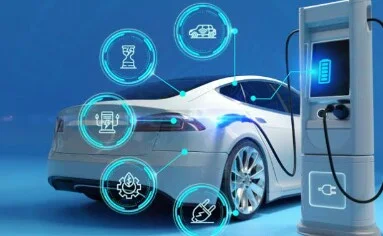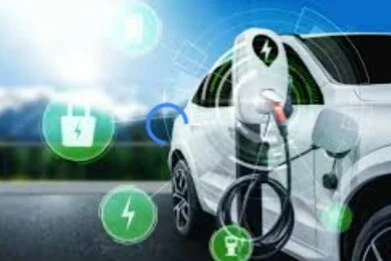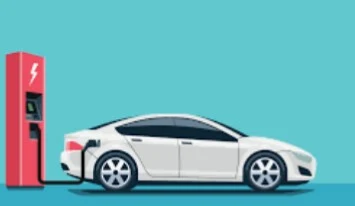Electric Vehicle
Spain vibrant culture for Electric Vehicle
Spain, known for its vibrant culture and sunny landscapes, is embracing a greener and more sustainable future with the rapid adoption of electric vehicles (EVs).
As concerns about climate change and air pollution continue to grow, Spain is at the forefront of the electric vehicle revolution, promoting a shift towards cleaner and more environmentally friendly transportation.
In this article, we will explore the increasing popularity of electric vehicles in Spain, the infrastructure developments supporting their adoption, and the government's efforts to drive electric vehicle usage.
Spain's Vibrant Culture and Electric Vehicles
Spain's rich culture and history offer a unique backdrop for the adoption of electric vehicles. Here are some key factors that contribute to the country's electric vehicle landscape:
| Factor | Description | Impact on Electric Vehicle Adoption |
|---|---|---|
| Tourism Industry | Spain is a popular tourist destination, attracting millions of visitors annually. | Electric vehicles can offer a sustainable and eco-friendly option for tourists, potentially boosting their adoption. |
| Mediterranean Lifestyle | The Mediterranean lifestyle, characterized by a focus on outdoor activities and enjoyment of the environment, aligns well with the values of electric vehicles. | This can increase consumer interest in electric vehicles as a sustainable and enjoyable transportation option. |
| Government Initiatives | The Spanish government has implemented various policies and incentives to promote electric vehicle adoption, including subsidies, tax breaks, and infrastructure development. | These initiatives have played a significant role in driving the growth of the electric vehicle market in Spain. |
| Renewable Energy | Spain has abundant renewable energy resources, such as solar and wind power. | This can support the development of a sustainable electric vehicle charging infrastructure and reduce the carbon footprint of electric vehicles. |
| Urban Planning | Many Spanish cities have historic centers with narrow streets and limited parking spaces. | Electric vehicles can be more suitable for urban environments, offering benefits such as reduced noise pollution and improved air quality. |
| Technological Innovation | Spain has a strong tradition of innovation and technological advancement. | This can contribute to the development of advanced electric vehicle technologies and charging infrastructure. |
Overall, Spain's vibrant culture, government initiatives, and renewable energy resources create a favorable environment for the adoption of electric vehicles. The country's focus on sustainability, tourism, and urban planning can further drive the growth of the electric vehicle market.
Popularity of electric vehicles in Spain
1. Embracing Sustainable Mobility:
With a strong commitment to sustainability, Spain is embracing electric mobility as a key solution for reducing carbon emissions. Spanish drivers are increasingly recognizing the benefits of electric vehicles, including their lower environmental impact, reduced fuel costs, and enhanced driving experience. The combination of environmental consciousness and technological advancements has made electric vehicles an attractive choice for eco-minded consumers.
2. Expanding Charging Infrastructure:
To support the growing number of electric vehicles, Spain has been actively expanding its charging infrastructure. Charging stations are being installed across the country, not only in urban areas but also along highways, parking lots, and shopping centers. Spain aims to provide a reliable and accessible charging network that eases concerns about range anxiety and encourages electric vehicle adoption. Public-private partnerships play a vital role in the development of charging infrastructure, ensuring convenience for electric vehicle owners.
3. Government Incentives and Support:
The Spanish government has implemented a range of incentives and support measures to encourage electric vehicle adoption. These include financial incentives such as subsidies, grants, and tax benefits for electric vehicle purchases. Additionally, the government is promoting the development of charging infrastructure and investing in research and development to enhance electric vehicle technology. These initiatives demonstrate Spain's commitment to sustainable transportation and its dedication to reducing greenhouse gas emissions.
4. Integration of Renewable Energy:
Spain's commitment to renewable energy aligns seamlessly with the growth of electric vehicles. The country has made substantial progress in renewable energy generation, particularly in solar and wind power. The integration of electric vehicles with renewable energy sources allows for a greener and more sustainable transportation ecosystem. By charging electric vehicles with clean energy, Spain reduces its dependence on fossil fuels and further reduces carbon emissions, contributing to a cleaner environment.
5. Overcoming Challenges:
While Spain has made significant progress in electric vehicle adoption, challenges remain. One of the key obstacles is the need for further expansion of charging infrastructure in rural areas, ensuring nationwide coverage and convenience for all electric vehicle owners.
Addressing the perceived limitations of driving range and improving the affordability of electric vehicles will be crucial in encouraging wider adoption across different socioeconomic segments.
Manufacture of Electric Vehicle in Spain
Spain's dedication to sustainability and its embrace of electric vehicles are propelling the country towards a greener future. With expanding charging infrastructure, government incentives, and a strong focus on renewable energy integration, Spain is driving the transition to a cleaner and more sustainable transportation system. By adopting electric vehicles, Spain not only reduces carbon emissions and air pollution but also fosters innovation and reinforces its position as a leader in sustainable mobility. As Spain accelerates towards a sustainable future, it serves as an inspiring example for other nations seeking to embrace electric vehicles and drive positive change for the environment.
The manufacture of electric vehicles (EVs) in Spain has been gaining momentum in recent years as the demand for clean and sustainable transportation grows. Several automakers and companies have established manufacturing facilities or announced plans to produce electric vehicles in Spain.
Here are a few examples Manufacture of Electric Vehicle in Spain
1. Nissan: Nissan has been manufacturing the electric Nissan LEAF, one of the best-selling electric cars globally, in its plant located in Barcelona since 2010. The plant produces both the LEAF and its batteries.
2. Renault: Renault has a production facility in Valladolid, Spain, where it manufactures the Renault ZOE, an all-electric compact car. The Valladolid plant is one of Renault's key EV production sites in Europe.
3. SEAT: SEAT, a subsidiary of the Volkswagen Group, has been investing in electric vehicle production in Spain. The company's plant in Martorell near Barcelona produces the SEAT Mii Electric, an all-electric city car. SEAT also plans to launch more electric models in the future.
4. Volkswagen Group: The Volkswagen Group has announced plans to produce electric vehicles in Spain. In collaboration with SEAT, the company aims to establish a new EV factory in Martorell, where it plans to manufacture electric vehicles based on the MEB platform.
5. Gestamp: Gestamp is a Spanish multinational company that specializes in automotive engineering and manufacturing. It is involved in the production of components for electric vehicles, such as battery trays and structural parts, for various automakers.
These are just a few examples of companies involved in electric vehicle manufacturing in Spain. The country has been making efforts to promote electric mobility, and with the increasing demand for EVs, it is likely that more automakers and companies will establish manufacturing facilities or expand their existing operations in the future.
Spain Regulation for Electric Vehicle
Spain has implemented several regulations and initiatives to promote the adoption of electric vehicles (EVs) and support the development of electric mobility infrastructure.
Here are some key regulations and initiatives related to electric vehicles in Spain:
1. Subsidies and Incentives: The Spanish government offers subsidies and incentives to promote the purchase of electric vehicles. These incentives include grants and subsidies for the purchase of electric cars, electric motorcycles, and electric bicycles. The subsidies are designed to make electric vehicles more affordable and encourage their adoption.
2. EV Infrastructure Development: Spain has been actively working on the development of electric vehicle charging infrastructure. Public charging stations are being installed in cities, highways, and public parking areas. The government provides financial support to municipalities and businesses for the installation of charging points.
3. Madrid Central: In an effort to reduce air pollution and encourage the use of electric vehicles, the city of Madrid implemented a Low Emission Zone called "Madrid Central." This zone restricts access to older, more polluting vehicles, while electric vehicles and other low-emission vehicles are exempt from these restrictions.
4. Tax Benefits: Electric vehicles in Spain are eligible for tax benefits. These benefits include exemptions from vehicle registration tax, reduced annual circulation tax, and reduced tolls on some highways. Electric vehicle owners also benefit from lower fuel costs, as electricity is generally cheaper than gasoline or diesel.
5. Zero Emissions Zones: Several cities in Spain have implemented or are planning to implement Zero Emissions Zones. These zones restrict the entry of conventional vehicles and promote the use of electric vehicles and other zero-emission vehicles. Examples include Barcelona's ZBE (Low Emissions Zone) and Valencia's ZEZ (Zero Emissions Zone).
6. National Strategy for Alternative Energy Vehicles (NEVA): The Spanish government has developed the NEVA strategy, which aims to promote the development, production, and use of alternative energy vehicles, including electric vehicles. The strategy includes measures to support R&D, infrastructure development, and the promotion of electric mobility.
It's important to note that regulations and incentives related to electric vehicles can change over time as governments continue to update their policies to encourage sustainable transportation. It's recommended to check with official sources or local authorities for the most up-to-date information on electric vehicle regulations in Spain.
Tax incentive for Electric Vehicle in
Spain offers several tax incentives to promote the adoption of electric vehicles (EVs) and support the transition to sustainable transportation.
Here are some key tax incentives for electric vehicles in Spain:
1. Vehicle Registration Tax (VRT) Exemption: Electric vehicles are exempt from the Vehicle Registration Tax, which is a one-time tax paid when registering a new vehicle. This exemption can significantly reduce the upfront cost of purchasing an electric vehicle.
2. Reduced Annual Circulation Tax: Electric vehicles benefit from a reduced annual circulation tax, also known as the road tax or vehicle tax. The amount of the tax is lower compared to conventional vehicles, resulting in ongoing cost savings for electric vehicle owners.
3. Value Added Tax (VAT) Reduction: The standard VAT rate in Spain is 21%, but electric vehicles qualify for a reduced VAT rate of 10%. This reduction applies to both the purchase of electric vehicles and related services, such as charging equipment installation.
4. Company Car Tax Incentives: Companies in Spain that provide electric vehicles to their employees as company cars benefit from tax incentives. The taxable value of electric company cars is reduced, resulting in lower tax obligations for both the employer and the employee.
5. Incentives for Charging Infrastructure: The installation of electric vehicle charging infrastructure may be eligible for tax deductions and incentives. Businesses and individuals investing in charging stations and related equipment can benefit from tax incentives, reducing the overall cost of infrastructure deployment.
It's important to note that these tax incentives may be subject to certain conditions and limitations. The specific details and eligibility criteria can vary, so it's recommended to consult with tax advisors or relevant authorities for the most accurate and up-to-date information regarding electric vehicle tax incentives in Spain.
Conclusion for the Electric Vehicle Revolution in Spain
Spain is undergoing a transformative electric vehicle revolution that is reshaping the automotive industry and driving the transition towards sustainable transportation.
The country has seen significant progress in electric vehicle manufacturing, with both domestic and international automakers establishing production facilities or announcing plans to produce electric vehicles in Spain. This surge in manufacturing is creating new job opportunities and contributing to the growth of the clean energy sector in the country.
The Spanish government has played a crucial role in promoting the adoption of electric vehicles by implementing a range of supportive policies and incentives. These include subsidies and grants to reduce the purchase price of electric vehicles, the development of an extensive charging infrastructure network, and tax benefits such as exemptions from vehicle registration tax and reduced annual circulation taxes. These measures have made electric vehicles more affordable and convenient for consumers, incentivizing their uptake and contributing to the reduction of greenhouse gas emissions.
Xities in Spain have implemented initiatives like Low Emission Zones and Zero Emissions Zones, restricting access to polluting vehicles and encouraging the use of electric vehicles. This has not only improved air quality but also enhanced the overall quality of life for residents. The efforts to promote electric vehicles in Spain align with the country's commitment to achieving its climate and sustainability goals, including the reduction of carbon emissions and reliance on fossil fuels.
The electric vehicle revolution in Spain is expected to continue to accelerate as technology improves, costs decrease, and consumer awareness and demand increase.
Ongoing advancements in battery technology and the expansion of fast-charging networks will address some of the challenges associated with electric vehicle adoption, such as range anxiety. With strong government support, collaboration between industry stakeholders, and a growing infrastructure network, Spain is well-positioned to further solidify its role in the global electric vehicle market and contribute to a more sustainable and greener future.






